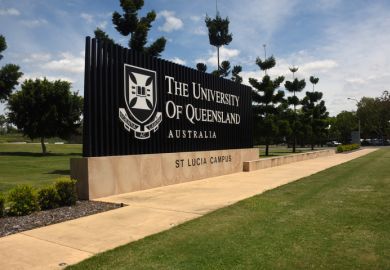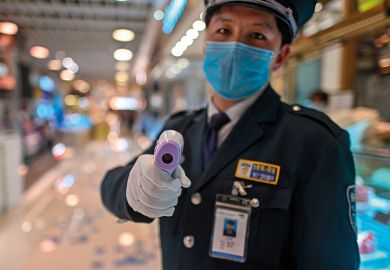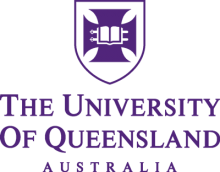The University of Queensland (UQ) will reconsider disciplinary action against an outspoken anti-China activist after his two-year suspension attracted international headlines.
The UQ Senate’s disciplinary appeals committee will hear an appeal by Drew Pavlou, the undergraduate student-elected member of the university’s governing body.
UQ chancellor Peter Varghese said the committee had the power to “confirm, vary or set aside” the decision to suspend Mr Pavlou, handed down by the university’s disciplinary board on 29 May.
“Mr Pavlou remains an enrolled student and no action will be taken on his suspension while the appeal is being heard,” Mr Varghese said.
The chancellor had called an extraordinary meeting of the senate on 5 June to discuss his “concern” about the severity of the punishment in response to 11 allegations of misconduct. Mr Pavlou tweeted that the meeting had been convened “under immense public pressure”.
“The Australian government expected UQ to abandon their vendetta against me,” he said. “But yet again, they capitulated to pressure from Beijing. The case goes on. How long will this disgrace go on?”
While the allegations against Mr Pavlou were kept confidential, in line with the university’s “standard” processes, at least four related to allegedly abusive or intimidating behaviour on social media. Another involved claims that Mr Pavlou had represented himself as speaking on behalf of the university.
His Twitter handle says his tweets are “personally endorsed” by the university, and he issues statements bearing the UQ logo and signed off by “Senator Drew Pavlou”.
The senate decision comes a day after Mr Pavlou posted a video message on Twitter, urging Mr Varghese to “stop this witch hunt” and exonerate him.
“Peter, I know you have been greatly humiliated throughout this entire ordeal,” it said. “However, you do not need to shred your reputation any further. I look forward to working with you on the senate this year.”
The proceedings against Mr Pavlou have been characterised in media reports as an effort to silence a high-profile critic of the Communist Party of China in order to safeguard the university’s relationship with the country.
Fees from Chinese students accounted for some 20 per cent of UQ’s revenue in 2018 and that figure is likely to have risen since. In 2019, the number of fee-paying international students at UQ rose by about 2,000. They constituted 38 per cent of the student body, up from 25 per cent in 2014. Last year their contribution to institutional revenue rose from 28 per cent to 32 per cent.
The university says this dependence has been foisted on it by government policy. “The Australian government is substantially reducing university revenues for teaching and non-medical research at a faster rate than alternative domestic sources of funding can be developed, thereby increasing reliance on international funding,” its annual report says.
Perceptions that the university was pursuing Mr Pavlou over his activism have also been fanned by the secrecy of the proceedings, the university’s engagement of two top law firms and the fact that a two-year suspension – extremely severe for disciplinary cases not involving serious academic misconduct or criminal behaviour – would make him ineligible to sit on the senate for the remainder of his term.
In a statement issued after the 5 June senate meeting, Mr Varghese said the alleged misconduct and freedom of speech claims had been “so commingled in the media coverage of the case that it made it difficult to untangle in public perceptions”.
He said the senate had “reaffirmed its view that no student should be penalised for the lawful expression of personal political views”, while also noting policies setting out “behavioural expectations of students”.
Mr Varghese said freedom of speech was “a foundational value of the university” as demonstrated by UQ’s recent adoption of a model code governing free expression on campuses.
While Mr Pavlou has suggested that the action against him was endorsed by vice-chancellor Peter Høj, the university insists that Professor Høj has had no personal involvement and insiders say suppressing dissent is not his personal style.
Professor Høj endured a very public brawl last year after acknowledging UQ’s negotiations with the controversial Ramsey Centre for Western Civilisation, while some other university administrators kept their own discussions under wraps.
A university governance expert said it was very unusual for a whole senate meeting to be called to discuss a student disciplinary issue, suggesting that an overturning of the suspension may have been intended.
Register to continue
Why register?
- Registration is free and only takes a moment
- Once registered, you can read 3 articles a month
- Sign up for our newsletter
Subscribe
Or subscribe for unlimited access to:
- Unlimited access to news, views, insights & reviews
- Digital editions
- Digital access to THE’s university and college rankings analysis
Already registered or a current subscriber?










